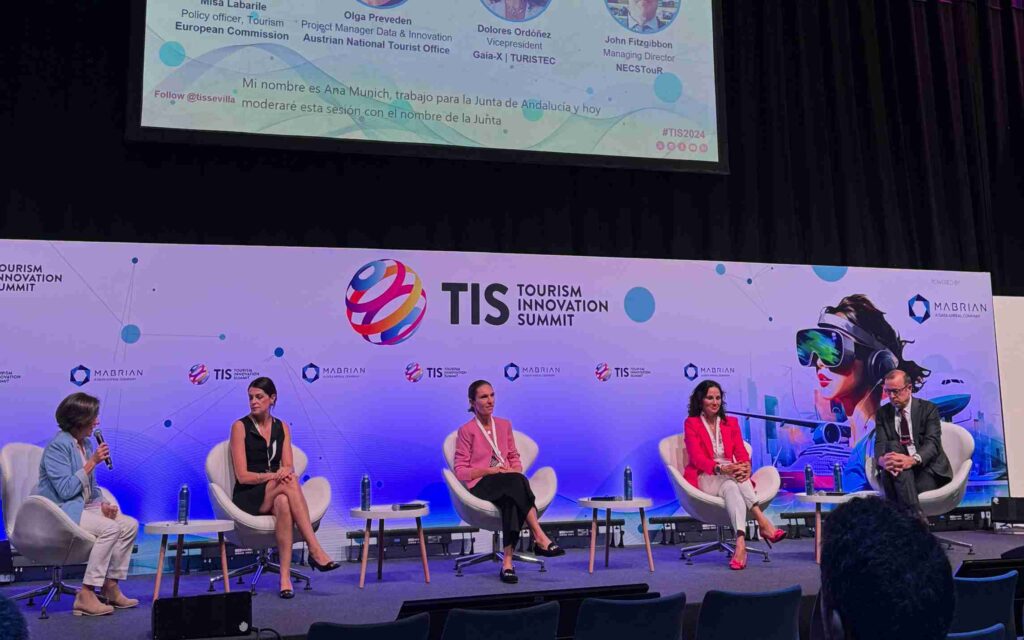A recent survey conducted by digital marketing agency SEO Travel has revealed concerning inaccuracies in travel itineraries generated by ChatGPT. The study found that a staggering 90% of the itineraries created by ChatGPT were deemed inaccurate, with errors ranging from outdated information on permanently closed restaurants or attractions, and incorrect opening times, to impractical and impossible schedules.
SEO Travel commissioned the research, tasking ChatGPT to plan 100 2-day weekend itineraries in the world’s top 10 city destinations and, well, the results might just have you thinking twice before entrusting AI with your holidays!
AI Travel Planning Mistakes
1. Fictional Places
One of the particularly concerning issues that cropped up within AI-generated travel itineraries was that it recommended places that simply do not exist. One example of this is when Chat-GPT suggested visiting a cafe called Antico Caffe Ponit during a two-day trip to Rome.
While there are several Antico Cafes and Antico Bars located throughout the city, there are not any by this name. With this in mind, we can only assume that Chat-GPT struggled to decipher between the existing Antico cafes and bars and the landmarks within the surrounding area.
Or, perhaps it was just fancied adding a bit of creative flair! Either way, following this itinerary would have travellers wasting precious time on their short trips aimlessly traipsing about the city in search of a fictional eatery.
2. Out of Touch Suggestions
Another common theme that we encountered throughout our AI-generated itineraries was suggestions that were, well, vastly out of reach for the majority of travellers.
While some wealthy jetsetters don’t think twice about splashing out on fine dining experiences, we can safely assume that three-star Michelin meals where you fork out around €200 just for a main meal might not be realistic for most tourists.
Exceptionally highly priced food and accommodation options were a common theme that ran throughout all of the destinations on our list, with 30% including visiting a restaurant with at least one Michelin star.
Such suggestions included eating at Paris’ L’Ambroisie, a 3-Michelin star restaurant where mains cost around £160, and The Hotel Plaza Athénée where rooms start from almost £1,530 a night.
Chat-GPT also suggested staying at The Ritz in London where rooms start at £819 a night, along with The Dorchester where rooms are £1000 plus.
3. Illogical Routes
1 in 4 (25%) itineraries display a lack of logical planning, requiring travellers to backtrack or take unnecessary detours in order to reach places.
For example, in Berlin, after visiting the DDR Museum, it suggested embarking on an hour-long walk or 20-minute public transport journey for a currywurst.
Only to return to almost exactly where you were to go to the cathedral of Berliner Dom, which lies but a 3-minute walk from the DDR Museum – where you were in the first place! In Dubai, it suggested going on a 12-mile detour for breakfast to an area nowhere near daytime activities.
Japanese itineraries involved travelling 30 miles on your first day, weaving back and forth across the city. In Rome, Chat-GPT made the mistake of suggesting travellers soak up the charm of the Trastevere neighbourhood at a restaurant a 20-minute walk away from the area… on the other side of the river.
Chat-GPT also suggested staying in a different hotel for each night during two-night trips to Amsterdam and Berlin, sometimes moving to hotels that were just a 10-minute walk from each other. We aren’t convinced that this is the most efficient way to spend a short break in these cities!
4. Visiting Outside of Opening Hours
One problem that came up time and time again, was that Chat-GPT kept recommending visiting cafes, restaurants and attractions outside of their opening hours. This was particularly common during the mornings.
The itineraries instructed travellers to get up and out to visit coffee shops or attractions nice and early… before they even opened.
For example, it recommended going for an 8 AM breakfast at a cafe that only opens at 12PM in Tokyo. In Madrid, this issue kept occurring throughout the whole day in some itineraries.
Chat-GPT recommended going to the Museo del Prado at 9.30 AM before it opens at 10 AM, going for lunch at a cafe an hour before it opens, staying at the Royal Palace of Madrid until after closing and then going to a cafe before it opens the following morning.
We saw this issue arise in relation to evening and afternoon activities in other destinations, too. Chat-GPT suggested visiting New York’s 9/11 Memorial and Museum at 8.30 PM when it closes at 7 PM, catching the Dubai Fountain show at 2.30 PM when it only runs from 6 PM onwards and going on the London Eye at 7 PM when the last admission is 5.15 PM most days.
Following such itineraries could not only result in disappointment but also waste valuable time, especially for those on short trips who might not have a chance to try again.
5. Permanently Closed Hotels, Restaurants and Attractions
Another, perhaps less forgivable mistake, that kept cropping up was visiting cafes, hotels, restaurants and attractions that were either temporarily or permanently closed. This issue arose within itineraries for almost all of the cities on the list.
Chat-GPT’s Berlin itineraries recommended visiting the Pergamon Museum in Berlin which is famously closed until 2026. What’s more, nearly half (40%) of Barcelona itineraries suggest dining at Tickets Bar which closed permanently 4 years ago in 2020.
In Berlin, Chat-GPT suggested eating at Café Einstein, which shut down last year. In Tokyo, it recommended visiting the Sky Deck of the Roppongi Hills Observatory which is closed until further notice. What’s more, Chat-GPT suggested a New York itinerary that included dinner at one permanently closed restaurant one night and another one the next!
6. Lack of Specification
Along with being unreliable and inaccurate, Chat-GPT travel itineraries can be downright confusing. This became particularly evident when the platform suggested visiting chain restaurants or cafes within a city.
Working out which specific establishment Chat-GPT referred to was often left to chance as it did not provide clear specifications. This ambiguity would likely prove pretty confusing for those visiting a city for the first time and not sure where they are going.
Amsterdam was one of the many cities where this issue arose. Chat-GPT suggested visiting Pancakes Amsterdam after exploring the Jordaan District and before taking a canal cruise. However, there are 5 of these cafes scattered throughout the city.
In Amsterdam again, it recommended dining at The Breakfast Club without specifying which one and there are 7 dotted all over the city. When it comes to which one Chat-GPT meant, your guess is as good as ours!
7. Unrealistic Schedules
Another recurring issue that ran throughout the itineraries was over-ambitious schedules. Chat-GPT squeezed numerous activities into unrealistic time frames that would be impossible for even the most dedicated of travellers.
For instance, a Dubai itinerary proposed allocating only two hours to visit the expansive Atlantis resort, Aquaventure Waterpark, and The Lost Chambers Aquarium. In reality, spending just two hours on one of these attractions would be more appropriate.
Similarly, in Tokyo, Chat-GPT suggested visiting the Ueno Zoo, Tokyo National Museum, and Toshogu Shrine in just 2.5 hours. This timeframe was also highly unrealistic unless you were to race through each attraction, rushing from one to the next and detracting from your enjoyment of the experience.
On the other side of the scale, Chat-GPT suggested spending 2 hours watching the changing of the guard in London which actually only takes 45 minutes. This would leave you twiddling your thumbs for an hour and a quarter.
Conclusion
Considering there were significant issues and inaccuracies in 90% of Chat-GPT-generated travel itineraries, it’s clear that the platform does not provide dependable holiday planning just yet. With this in mind, travel companies remain just as essential and relevant as ever.
These companies not only create accurate and reliable itineraries but also tailor them to suit your unique interests, preferences and budget. This allows you to relax and enjoy the perfect








